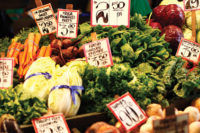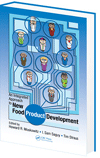Nanotech to Improve Food Quality

Nanotechnology is the understanding and control of miniscule atoms and molecules called nanoparticles. A nanoparticle is between 1 and 1,000 nanometers; a single nanometer is one-billionth of a meter. The science is currently being used in engineering, manufacturing, medicine, and most notably, in the delivery of cancer fighting drugs to hard-to-reach tumors.
Food scientists hope to harness nanotechnology to improve food design, processing, protection and convenience, said Cristina Sabliov, associate professor in the Biological and Engineering Department at Louisiana State University. Food producers also hope to extract, deliver and control the release of important nutrients, and even mask their unpleasant taste.
Specifically, Sabliov has been studying the use of nanotechnology to improve the delivery and absorption of vitamin E in the human body. Her recent research involves extracting vitamin E from rice, and successfully delivering the nutrient via a nanoparticle more directly into the body and improving absorption.
Nanotechnology cannot be used in food production until safety concerns are “disproved and tackled,” said Sabliov. “Once delivery systems are perfected, and safety is ensured,” nanotechnology can be used to deliver nutrients, and even medication.
From the June 15, 2011, Prepared Foods' Daily News.
Looking for a reprint of this article?
From high-res PDFs to custom plaques, order your copy today!









